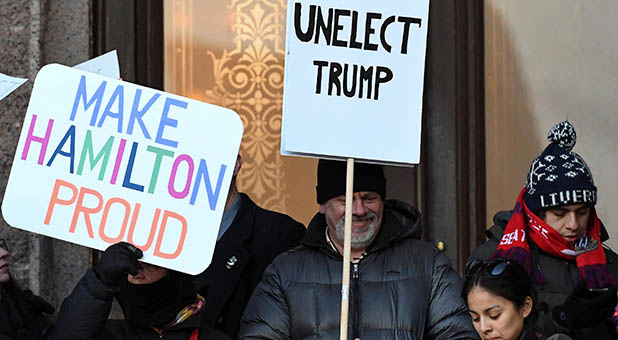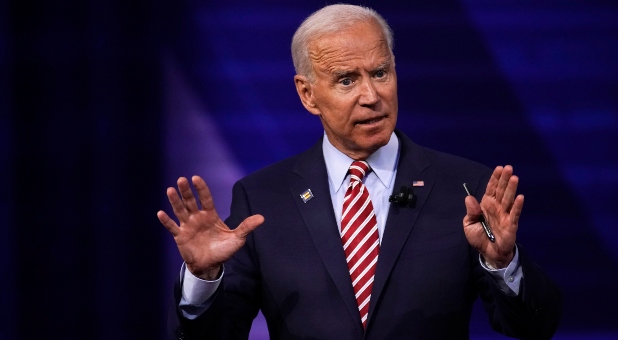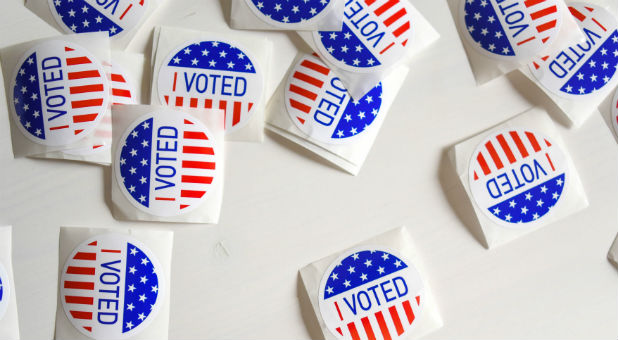This year marks the fifth time in history the popular vote winner lost the presidency. The other elections were in 1824, 1876, 1888 and 2000.
Though Donald Trump won 306 electoral votes to Hillary Clinton’s 232, it may not be over yet. Several activist groups are demanding electors reject their state’s voters and cast a vote for someone other than Trump.
More than 50 of the 232 Democratic electors, and one Republican elector, have even asked for a national security briefing on the potential Russian hacking of the Democratic National Committee emails before casting a vote.
President Barack Obama opted against weighing in on what electors should do, but spoke during his Friday press conference more generally about the Electoral College. Obama said:
The Electoral College is a vestige of an earlier vision of how our federal government was going to work that put a lot of premium on states. It used to be that the senate was not elected directly, it was just decided by state legislatures. It’s the same type of thinking that gives Wyoming two senators with about half a million people, and California with 32 million get the same two. There are some structures in our political system that disadvantage Democrats. But the truth of the matter is, if we have a strong message, if we are speaking to the issues the American people care about, typically the popular vote and the Electoral College vote will align.
Congress has considered 850 separate proposals to amend the Constitution to change the way a president is elected, said Christine Blackerby, co-curator of the “Amending America” exhibit at the National Archives Museum.
Here is a look at a few of those efforts.
12th Amendment
The first major proposed change to the Electoral College was the only successful reform, coming in response to a glitch exposed in the 1800 election.
Presidential candidate Thomas Jefferson and his vice presidential running mate Aaron Burr got the same number of Electoral College votes, 73 each. The problem was, in those days, the second-place finisher in a presidential race was the vice president. The House of Representatives voted 35 times before finally electing Jefferson president.
Congress passed the amendment on Dec. 9, 1803, and it was ratified on June 15, 1804, putting the president and vice president on a ticket for electors to choose.
Lottery President
In 1846, a proposal was floated in Congress to replace the Electoral College with a lottery system.
Under this proposal, each state would have its own election. The winners of each of those elections would then be chosen by lot in Washington. Balls with names of candidates would be placed in a bowl, similar to lottery drawings seen today on TV. The first name drawn would be president, the second name drawn would be the vice president, Blackerby explained.
The proposal, House Joint Resolution 8, introduced on Jan. 13, 1846, never came to a vote.
Still, the “Amending America” exhibit allows visitors to see the most popular person from each state based on Google searches, then entered into a random drawing, to see who could be president today if this system had been enacted.
Executive Committees
Although the biggest complaint against the Electoral College is typically that it’s undemocratic, the exhibit lists two occasions that Congress considered taking matters entirely out of voters’ hands.
In 1808, a constitutional amendment was introduced in Congress to scrap the Electoral College and replace it with a special committee of retired U.S. senators to choose the next president.
Congress introduced a similar proposal in 1860, just before the Civil War broke out. In this case, Congress and the executive branch would appoint a three-person committee that would choose the president every four years.
Direct Popular Vote
Of the hundreds of proposed changes to electing a president, a popular vote was far and away the most common. Similar bills have been introduced in nearly every session of Congress, but in most cases they were never debated nor acted upon.
The most recent examples where a popular vote proposal nearly passed were in 1969 and 1975, according to a Congressional Research Service report.
After the 1968 presidential election, third-party candidate George Wallace won 46 electoral votes. This prompted enough concern about third parties that Rep. Emanuel Celler, (D-N.Y.), proposed a resolution abolishing the Electoral College in favor of a popular election, in which the winner would have to win at least 40 percent of the vote. The resolution passed the House by a 338-70 vote, but it was blocked by a filibuster in the Senate.
After the close 1976 election, Sen. Birch Bayh, D-Ind., proposed a bill to amend the Constitution and switch to a direct popular vote. The bill failed by a close 51-48 vote.
In other examples of action on the proposal to move to a popular vote, the House Judiciary Committee held hearings on the proposal in 1947, 1949, 1951 and 1969. The Senate subcommittee on constitutional amendments held hearings in 1948, 1953, 1955, 1961, 1963, 1966, 1967 and 1969. {eoa}
This article was originally published at DailySignal.com. Used with permission.
See an error in this article?
To contact us or to submit an article






















